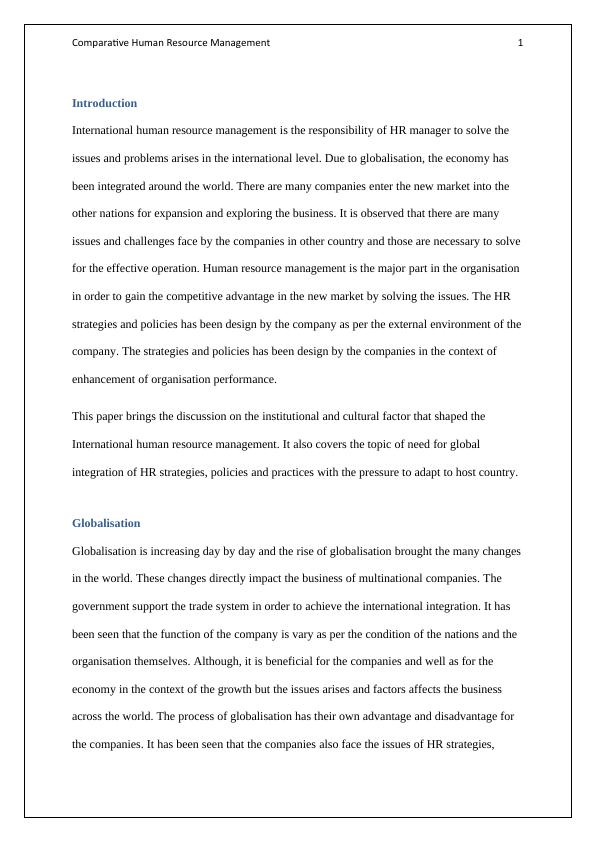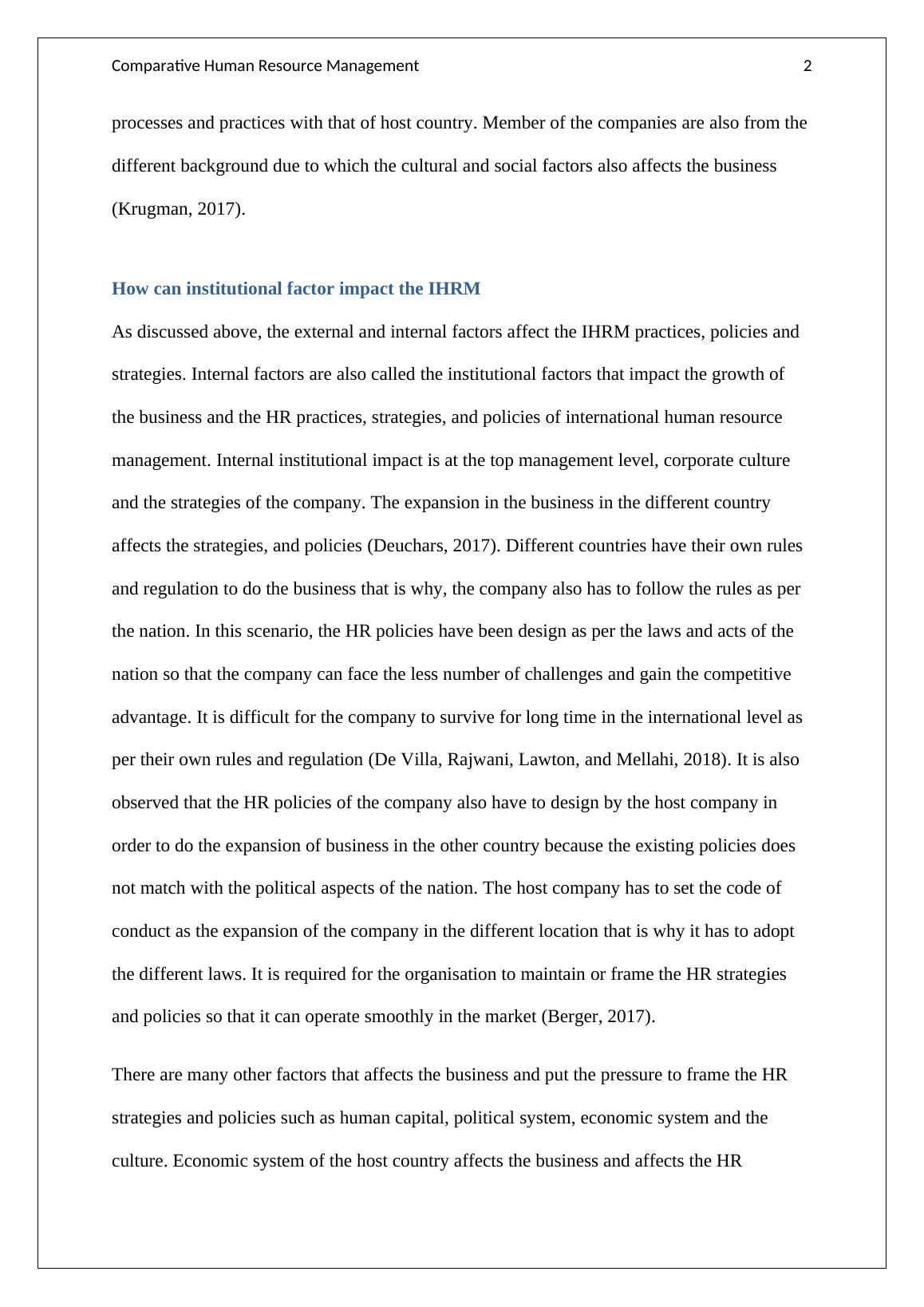Institutional and Cultural Factors in International Human Resource Management
Critically analyze ways in which IHRM is shaped by institutional and cultural/societal factors and how firms can balance the need for global integration of HR strategies with host country requirements.
9 Pages2678 Words80 Views
Added on 2023-01-19
About This Document
This paper discusses the institutional and cultural factors that shape international human resource management (IHRM) and the need for global integration of HR strategies, policies, and practices. It explores how institutional factors such as laws, regulations, and economic systems impact IHRM, as well as the cultural and social factors that affect HR policies and practices. The paper emphasizes the importance of understanding and adapting to the host country's institutional and cultural context in order to effectively manage HR in international settings.
Institutional and Cultural Factors in International Human Resource Management
Critically analyze ways in which IHRM is shaped by institutional and cultural/societal factors and how firms can balance the need for global integration of HR strategies with host country requirements.
Added on 2023-01-19
ShareRelated Documents
End of preview
Want to access all the pages? Upload your documents or become a member.
International and Domestic HRM - Tesco
|9
|687
|47
3 Most Important HR Practices for an International Business
|11
|625
|193
Differences between Human Resource Management and International Human Resource Management
|22
|5613
|170
Annotated Bibliography on IHRM
|4
|775
|74
International Human Resource Management: Theories and Practices
|13
|3671
|248
International Human Resource Management Practices: Recruitment, Selection, Training and Development
|16
|3076
|58



